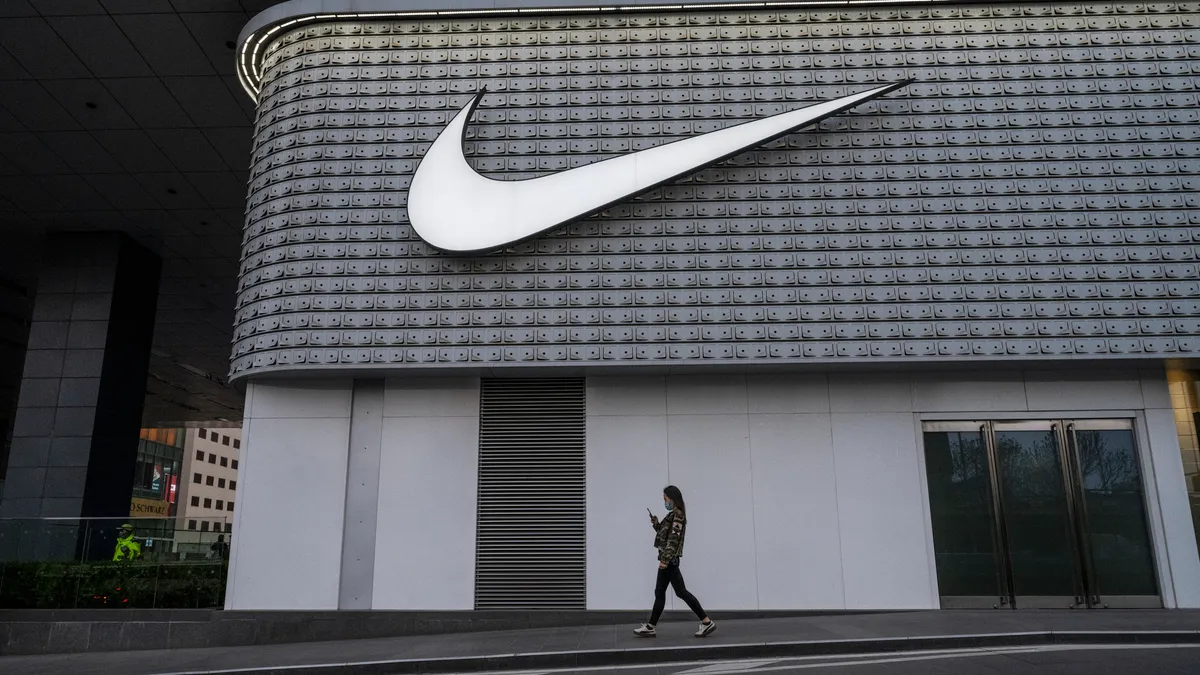Gen Z — the generation born between the late '90s and mid-2000s — is like no other demographic seen before. These young, complicated consumers have their lives plastered all over the internet, and while not easy for marketers to reach, they are a growing and influential segment of the population that's on its way to becoming the largest demographic of consumers by 2020, accounting for $29 to $143 billion in direct spending.
"Gen Z does not necessarily have the credit cards or the deep pockets, but they are pulling the purse strings of their parents — creating a massive, multi-billion-dollar land grab for the holiday season," Ryan Detert, CEO of Influential, told Retail Dive's sister publication Marketing Dive in an email.
One of the biggest challenges facing marketers is how difficult it is to put these consumers into a definable box, as they are constantly shifting their beliefs based on who's listening, a recent report from RPA titled "Identity Shifters" revealed.
"Don't just market your brand this holiday season; help Gen Z market themselves," Jess Watts, associate strategic planning director at RPA, advised. "We learned in our research that Gen Z is interested in amplifying themselves and their personal brands. They have a deep desire to monetize their identity, to obtain power and influence. They see brands as potential allies and resources in their personal quests to be known."
Like any young group of shoppers, Gen Z wants to be heard. Marketers could benefit by listening in on Gen Z's digital conversations and then co-creating the actual marketing campaigns in conjunction with these rising consumers, Gregg Witt, EVP of youth marketing at Motivate, told Marketing Dive in emailed comments.
"As a brand, positioning yourself as an authority to Gen Z is definitely not advisable," Witt said. "You stand a much better chance of earning your way in as a trusted friend, with no pretense of control."
In social media we trust
When making holiday shopping decisions, Gen Z is likely to first turn toward social media. The generation relies on "likes" on Facebook and positive comments from social influencers to help form opinions about products and brands, according to RPA's research.
What a brand says about itself is almost as important as what other consumers think for this age group. Gen Z wants brands to take a stand and be the risk takers, so that they don't have to. In fact, RPA research shows that Gen Z is more likely to retweet an opinion about a product or brand than express their own opinion.
"Every Gen Z is a possible social influencer online"

Mia von Sadovszky
SVP, group strategic planning director, RPA
For Gen Z, the ultimate goal is influence, which in itself is power. They're hungry for the ability to make others listen to them, so that they can make the world a better place — a place made in their image.
"So many brands are aggressively selling to you during the holidays. A brand can better break through that clutter by engaging [Gen Z] to help through their unique, authentic voice," Mia von Sadovszky, SVP, group strategic planning director at RPA, told Marketing Dive. "Every [Gen Zer] is a possible social influencer online ."
But which platforms will Gen Z be on?
Marketers should be active on YouTube, Instagram and Snapchat, per Witt. Other creative ways to reach this demographic digitally include live streaming on Twitch and YouNow or utilizing messenger apps with chatbots. He also suggested developing a presence on emergent creator apps like TikTok (formerly Musical.ly) because there are fewer brands on those platforms competing for attention — at least for the time being.
Detert said Gen Z will be on Instagram this holiday season, specifically Instagram Stories, as well as the comparable Snapchat Stories. And, of course, social influencers will play a strong role in marketing to Gen Z. These influencers essentially act as a focus group for what the audience will most likely resonate with.
"We are actually taking these individuals as the face of a brand and then putting the power of distribution on a mass social media scale behind them," Detert said.
However, social influencers can have their drawbacks, especially if the brand looks at these drivers as a talent model. Instead, Deter recommends looking at them as a distribution mechanism, with dozens to hundreds of them speaking on behalf of the brand, that fit demographically, contextually and psychographically.
Christmas wish lists
A few brands have already come out of the gate strong and grabbed the attention of Gen Z, including Supreme NYC, Wawa and Gamestop, according to Witt.
"At the core, these retailers have one point of differentiation in common that is winning the hearts and wallets of today's youth culture: they create a sense of belonging," he said.
The RPA research points toward Nike as a likely standout for the holidays because of the athletic giant's ability to align its ambition with its personal brand and make millions of young consumers feel like they belong.
"Nike is more like a lifestyle type thing. 'Just do it.' That's actually my motive. Just do it. Just take action, it changed my life, thinking about and watching their ads, it just inspires me to go out and get it," said Jordan, a 21-year-old quoted in RPA's report.
"It is better to be counterintuitive to get the attention of this generation."

Ryan Detert
CEO of Influential
Brands that are breaking down the wall between the performers and the audience are also finding success, noted Detert.
"Aside from providing emotive or funny content, it actually works when the brand can make fun of the fact that 'this is an ad,'" Detert said. "Because of that, the consumer should keep watching — it's something they haven't seen before. It is better to be counterintuitive to get the attention of this generation."
What to avoid
There are several pitfalls to avoid when marketing to Gen Z this holiday season, however. Witt warns marketers against making a general broadcast on social media, mistakenly treating the feed like advertising inventory.
"Brands need to go beyond buying media and running campaigns — they need to become relevant members of youth communities," Witt said.
Marketers should also try to avoid just communicating what they think the consumer wants to hear, as this generation is very in tune to what an ad is and what is just a piece of great content, Deter noted. Gen Z buys products based off of the desire to identify with a brand, so brands will benefit from getting into the hearts and minds of their customers.
"To find the right message, you need to go far beyond your service, product and packaging and really determine who you are and what you represent to Gen Z," Witt said. "It's the differentiator between successful brands with strong audiences and proven staying power and those that struggle to sell through during the holidays, or any season for that matter."





















